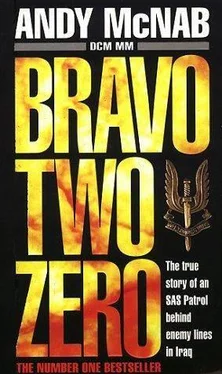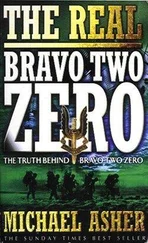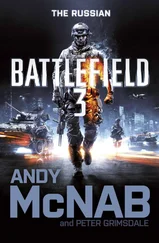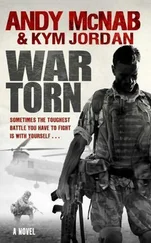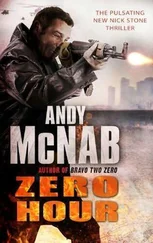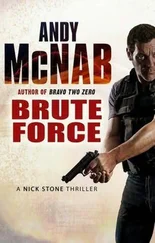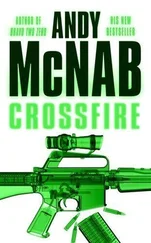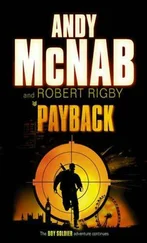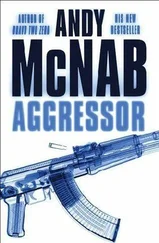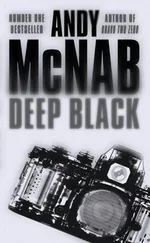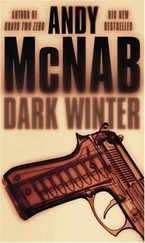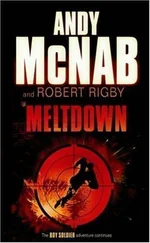The top of each orders sheet is overprinted with the words Remember Need to Know to remind you of OP SEC It’s critically important that nobody should know anything that does not concern him directly. The pilots, for example, would not attend the orders.
I started by describing the ground we were going to cover. You have to explain your orders as if nobody’s got a clue what’s going on-so in this case I started by pointing out where Iraq was and which countries bordered it. Then you go into the area in detail, which for us was the bend in the MSR. I described the lie of the ground and the little topographical information I had. Everything that I knew, they had to know.
Next I gave times of first and last light, the moon states, and the weather forecast. I had been confidently informed by the met blokes that the weather should be cool and dry. Weather information is important because if, for example, you have been briefed in the orders that the prevailing wind is from the northeast, you can use that information to help you with your navigation. Since the weather was still forecast as fairly clement for the duration of our mission, we had again elected to leave our sleeping bags behind. Not that there would have been any room to take them anyway.
I now gave the Situation phase of the orders. I would normally tell at this point everything I knew about the enemy that concerned us-weapons, morale, composition, and strengths, and so on-but the intelligence was very scanty. I would also normally mention the location of any friendly forces and how they could help us, but for our op there was nothing to tell.
Next was the mission statement, which I repeated twice. It was just as the OC had given it to us in the briefing room: one, to locate and destroy the landline in the area of the northern MSR, and two, to find and destroy Scud.
Now came Execution, the real meat of the orders-how we were actually going to carry out the mission. I gave a general outline, broken down into phases, a bit like telling a story.
“Phase 1 will be the infiltration, which will be by the Chinook. Phase 2 will be moving up to the LUP-cum cache area. Phase 3 will be LUP routine. Phase 4 will be the recce, then target attack on the landline.
Phase 5 will be the actions on Scud location. Phase 6 will be the exfiltration, or resupply and re tasking
Then, for each phase, I would go into the detail of how we were going to do it. This has to be as detailed as possible to eliminate gray areas. After every phase I then gave the “actions on”-for instance, actions on compromise during the drop-off, if the patrol came under fire just as the heli.took off again. Then people would know what I wanted to happen when there was no drama, and they’d also know what needed to happen if there was.
That was all very fine in theory, of course, but for each of these actions on, you also need to describe every detail of how you want things to be done. All of this had to be talked about and worked out beforehand and then given in the formal orders. Forward planning saves time and energy on the ground because people then know what is required of them. For example, what happens if the heli is required to return to the patrol at some stage to replace a damaged radio? When the heli lands do we go around to the back of the aircraft? Do we take the new radio out of the load master side door? How do we actually call the heli in? What is the authentication code? The answer to this one was that we’d give a phonetic code, the letter Bravo, as recognition. The heli pilot would know that at a certain grid, or in a certain area within that grid, he was going to see us flashing Bravo on infrared. He’d be looking through his PNG (passive night goggles), and because I’d told him so, he’d know he would land 15 feet to the left-hand side of the B when he saw it. Then, because he was landing on my right hand side, all I’d have to do was walk past the cockpit to the load master door, which is behind the cockpit on the left-hand side on the Chinook, throw a radio in, and catch the radio that they threw out. If there were any messages they’d grab my arm and give them to me on a bit of paper. The exchange would be all over in a minute.
It took about an hour and a half to go through all the details of each phase. Next were coordinating instructions, the nitty-gritty details like timings, grid references, RVs, locations of interest. These had already been given but would be said again to confirm. This stage also included actions on capture, and details of the E amp;E plan.
I covered service support, which was an inventory of the stores and equipment we were taking with us. And finally I described the chain of command and signals-types of radio, frequencies, schedules, codes and code words and any field signals that were unique to the task.
“As I’m sure you all know by now,” I said, “our call sign is Bravo Two Zero. The chain of command is myself as patrol commander and Vince as 2 i/c. The rest of you can fight for it.”
It was now the patrol’s chance to ask questions, after which we synchronized watches.
The air brief was given by the pilot, since he would be in command during the infil and exfil phases. He showed us a map of the route we were going to take, and talked at some length about the likely difficulty of antiaircraft sites and attack by Roland ground-to-air missiles. He told us what he wanted to happen in the back of the aircraft, and the actions on crashing. I had talked to him about this before and was secretly glad that he wanted us to split up, with the aircrew and the patrol taking their own chances. To be honest, we wouldn’t have wanted a bunch of aircrew with us, and for some reason they were not particularly keen to come with us anyway. He spoke, too, about deconfliction, because there were going to be air raids going in on surrounding targets-a number of fixed-launch sites were going to be hosed down within 6 miles of our drop-off point. Our deconfliction was arranged to enable us to slip in under these air strikes and use them for cover.
The orders group ended at about 1100. Everybody now knew what they had to do, where they were doing it, and how they were going to do it.
At lunchtime, we were told that because of deconfliction we might not be able to get in. However, we were going to attempt it anyway-you don’t know until you try. We would refuel just short of the Saudi/ Iraq border, then go over with full tanks. We did a final round of checks, loaded the kit onto wagons, and ate as much fresh food as we could get down us.
We were eager to go. The mood was very much one of let’s just get in there and do it. We’d leave it to the other blokes to run round stealing tents and kit and generally square everything away. The camp would be sorted out by the time we returned.
At 1800 we climbed into the vehicles and drove across to the Chinook. It was all rather casual, with blokes from the squadron coming up and saying, “What size are those new boots of yours-you won’t be needing them again, will you?” At our first location four or five of us had nicked some foam mattresses, operating on the usual principle: if it’s there and it’s shiny, take it. Now some of the other patrols started coming over and saying, “You won’t be needing it ever again, will you, so you can leave it for us.” They accompanied it with the motion of digging our graves.
Even the RSM (Regimental Sergeant Major) appeared. “Get in there, do the business, and come back.” That was the extent of his brief.
Bob suddenly remembered something. “I’ve fucked up,” he said to a mate. “I haven’t completed the will form. My mum’s name is down and I’ve signed it-you’ll have to dig in my kit for her address. Can you make sure it’s all sorted and handed in?”
I had a quick chat with the pilots. They’d been given sets of body armor and were going through big decisions about what to do with it-whether to sit on it so they didn’t get their bollocks shot off, or actually wear it so they didn’t get shot in the chest. They came to the conclusion that it was better to wear it on the chest, because they could live without their balls.
Читать дальше
